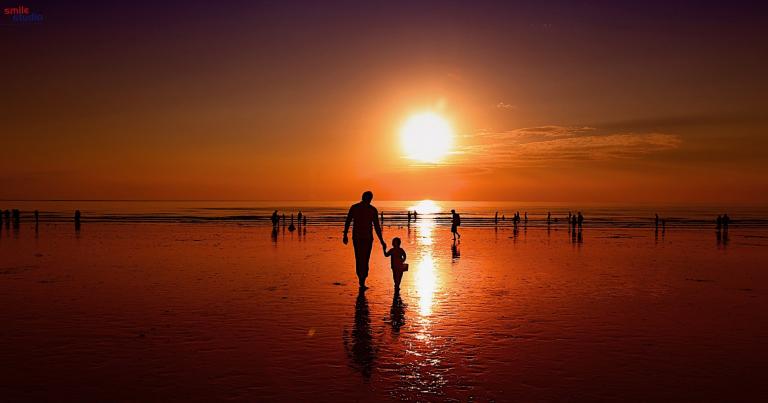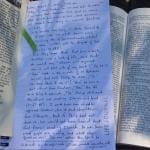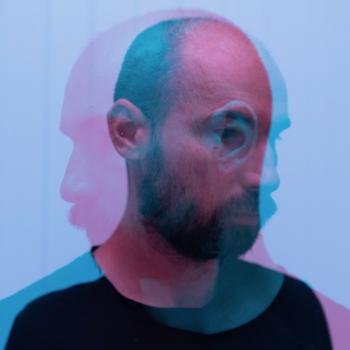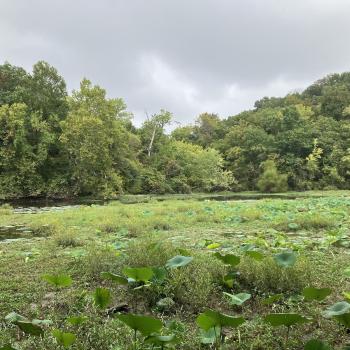Koheleth seems to be an elder, reflecting on what is truly meaningful in this life. Life is brief. Our lives and times are in the hands of God.
After taking last week off from Ecclesiastes, I am now returning to this study. For the most part, this is my original work submitted for publication, and originally published in 2013. This portion of Eccl 9 was originally published with what I have shared so far in Eccl 3 because of the similar themes. In some of the other pieces I have now added commentary from Church Fathers, particularly the Cappadocian Fathers.
regarding Solomon and the authorship of Ecclesiastes CLICK HERE
knowing the times | an introduction to Ecclesiastes 3 CLICK HERE
resonating in awe with the presence of God in Ecclesiastes CLICK HERE
peace, love, and good questions in Ecclesiastes 3 CLICK HERE
will of God vs. “what God has done” CLICK HERE
“the good life” & its attraction CLICK HERE
For this piece, to read Ecclesiastes ix.1-10 CLICK HERE

i. God’s hands hold all life
In this passage, Koheleth returns to the theme that everything is in the hands of God, “the righteous . . . the wise . . . their deeds” (Eccl ix.1, NRSV).
By definition “the righteous,” or the just, have walked in the ways of God until they are identified with it.
Also “the wise” are not necessarily the well-educated. Hebrew wisdom is often very practical, including principles of right and wrong, and ethical decision making under God’s oversight.
Ultimately, life is lived out “in the hand of God,” symbolizing His strength, dominion, and power. Whether love or hate in this life, the extremities of human experience, all is subject to the authority of God. Consequently, “no one knows whether love or hate awaits them” (verse 1, NIV).
ii. the hand of Providence
God holds all of life in His hands. There is one event, “the same fate,” pointing toward one end for all (Eccl ix.2, NRSV). We may think of death in terms of fate or chance, but that concept is quite foreign to the Hebrew mind. Our ultimate and “common destiny” is firmly within His grasp (NIV).
The “righteous” and the “wicked” are contrasted. One loves good, loves justice, and seeks God. The other forsakes God, lives wickedly, and remains guilty of sin. Koheleth repeatedly defines these terms by contrasting them with each other.
The terms, “clean and the unclean,” stand in contrast as well. Koheleth is speaking here of ritual or ceremonial purity. Unclean applies to a number of Old Testament references, including certain animals, people after defiling activities, and Israel after idolatry.
Unclean is generally an outward representation of something deeper and defiling, pointing ultimately to the state of an interior life that is not holy.
Along the same lines, Koheleth contrasts those who sacrifice and those who do not.
He concludes with a refrain.
“As it is with the good,
so with the sinful;
as it is with those who take oaths,
so with those who are afraid to take them.” (Eccl ix.2, NIV)
Once again “the good” and “the sinful” are contrasted, along with those who swear oaths, and those who do not.
“To swear in the Old Testament was to give one’s sacred unbreakable word in testimony that the one swearing would faithfully perform some promised deed, or that he would faithfully refrain from some evil act.” (R. Laird Harris, Gleason L. Archer, and Bruce K. Waltke, eds., Theological Wordbook of the Old Testament, vol. 2, Moody Press, p. 900)
iii. life applications
In the verses that follow, again the theme of living life to its fullest is reframed. Life seems meaningless, unless connected to God alone (Eccl ix.7-9).
Koheleth seems to be an elder, reflecting on what is truly meaningful in this life.
Life is brief.
Our lives and times are in the hands of God.
We find purpose only in our connection with Him, and in living life to its fullest.
These themes are more powerful for the Christian. God may seem distant as we wrestle with the great questions of life, but through Christ we have access to an intimate, everlasting relationship with the Creator.
reflective prayer
Heavenly Father, Creator and Sustainer of life, thank You for holding the keys to our purpose and destiny. We ask that You would open our eyes to see how temporal life is and to see what is truly meaningful. May we trust in Your loving oversight, so that our souls will find an everlasting anchor in You. In the name of Your Son, our Lord Jesus Christ, we pray. Amen













